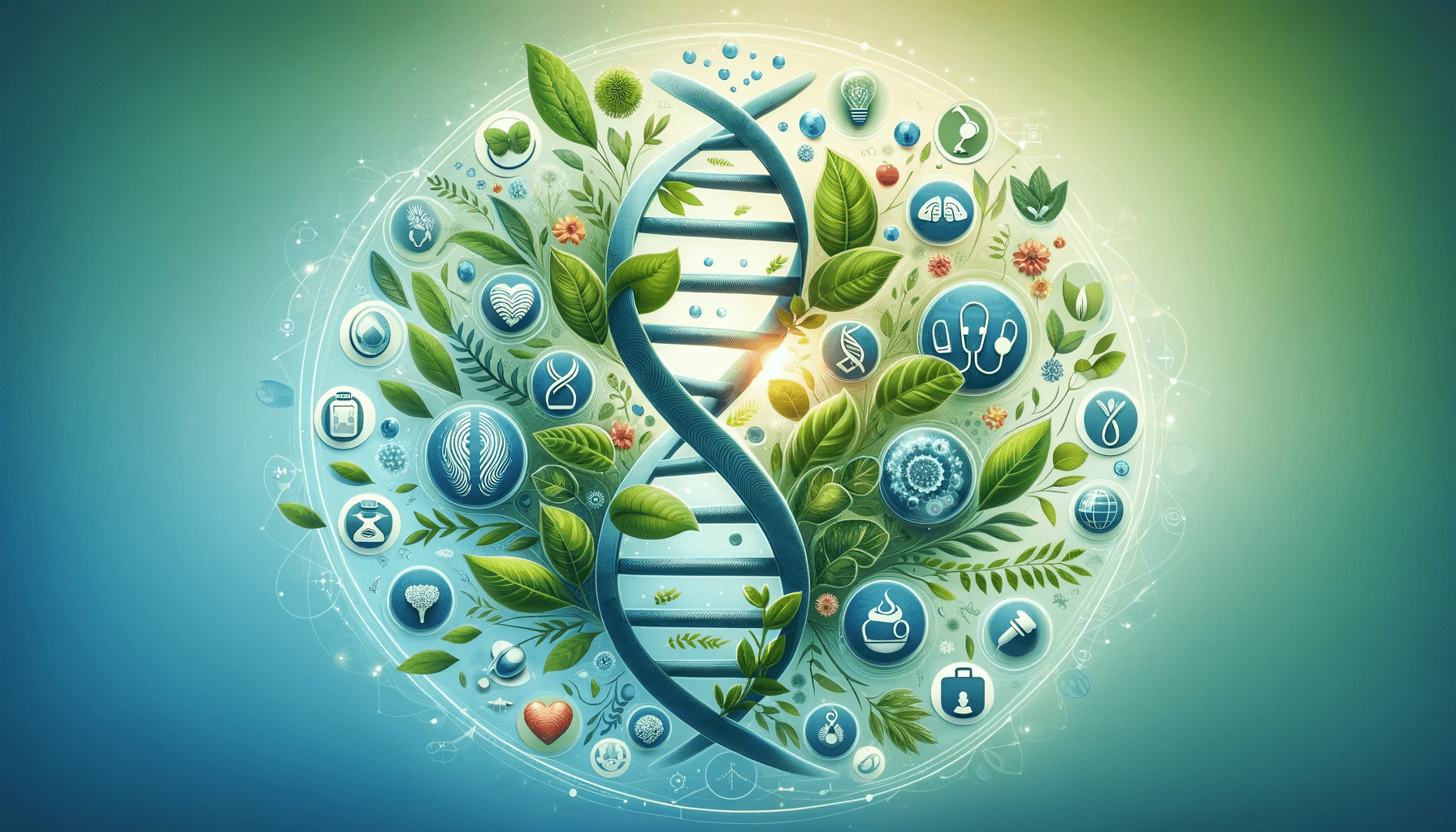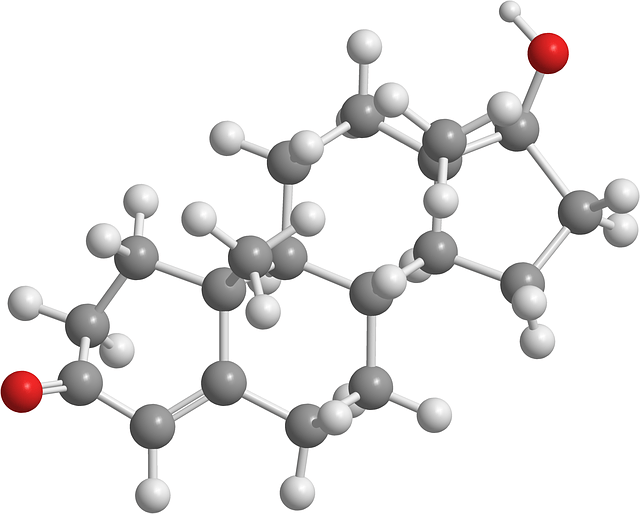What are Epigenetics
Epigenetics, a term coined in the early 20th century, has emerged as a pivotal area of study in the realm of genetics and molecular biology. This field explores how environmental factors can influence gene activity without altering the DNA sequence itself. Unlike genetic changes, epigenetic alterations are reversible and do not change the DNA code but can change how the body reads a DNA sequence.
Defining Epigenetics
At its core, epigenetics involves changes in organisms caused by the modification of gene expression rather than alteration of the genetic code itself. A study by Jablonka and Lamb in 2002 (Jablonka & Lamb, 2002) highlighted the significance of epigenetic changes, demonstrating that these modifications could have lasting impacts on gene expression, independent of the DNA sequence.
Historical Context and Evolution
The concept of epigenetics has evolved significantly since its inception. Initially, it was used to describe the processes through which genes and their products bring the phenotype into being. Amitai Etzioni’s work in 1963 (Etzioni, 1963) provides a broader perspective on epigenesis, suggesting a gradual development of increasing complexity in biological and sociological systems. This early understanding laid the groundwork for today’s interpretation of epigenetics, which focuses more on the dynamic regulation of genes and their expressions.
The Impact of Epigenetics
The study of epigenetics bridges the gap between nature and nurture, providing a comprehensive understanding of how the environment can shape genetic expression. It offers insights into how certain genes are activated or silenced over a person’s lifetime and how these changes can be passed down to future generations.
Mechanisms of Epigenetics
Epigenetics, a fascinating aspect of genetics, involves changes in gene expression that do not alter the DNA sequence itself. Several mechanisms underpin these epigenetic changes, playing crucial roles in how our genes are regulated.
DNA Methylation
One of the primary epigenetic mechanisms is DNA methylation. This process involves the addition of a methyl group to the DNA molecule, typically at cytosine bases. A study by Mehler (2008)1 elucidates how DNA methylation is pivotal in regulating gene expression, particularly in brain development and neurological diseases. By modifying the DNA in this way, certain genes can be turned on or off, which is crucial for various cellular functions.
Histone Modifications
Histones, the proteins around which DNA winds, undergo various modifications that impact gene expression. These modifications include the addition or removal of chemical groups, such as methyl or acetyl groups. Research by Wolffe and Matzke (1999)2 has shown that these histone modifications are integral to controlling gene accessibility and transcription. Essentially, these modifications can either pack DNA tightly, making genes less accessible for expression, or loosen it, allowing genes to be more actively transcribed.
Non-Coding RNAs
Non-coding RNAs (ncRNAs) are RNA molecules that do not code for proteins but play a crucial role in regulating gene expression. They can guide the addition or removal of epigenetic marks and are involved in various cellular processes. An insightful study by Wei et al. (2017)3 highlights the importance of ncRNAs in epigenetic control, particularly in regulating cell growth, differentiation, and diseases like cancer.
Nucleosome Positioning
Nucleosomes, which consist of DNA wrapped around histone proteins, can shift their positions along the DNA. This repositioning, as described by Mehler (2008)1, can either expose or hide certain gene regions, influencing gene expression patterns. It’s a dynamic process that responds to various internal and external stimuli.
Environmental Influences
Epigenetics also bridges the gap between our environment and our genetic makeup. Environmental factors like diet, stress, and toxins can lead to epigenetic changes, influencing our health and susceptibility to diseases. Zhang and Meaney’s (2010)4 research underscores how environmental events can directly modify the epigenetic state of the genome, leading to changes in gene expression and neural function.
In summary, epigenetic mechanisms are complex and multifaceted, playing a significant role in regulating gene expression and impacting our overall health. Understanding these mechanisms is crucial for developing targeted therapies and personalized medicine approaches.
Epigenetics in Health and Disease
Epigenetics, a field exploring how genes are expressed and regulated, plays a crucial role in our understanding of health and disease. Unlike genetic mutations, epigenetic changes don’t alter the DNA sequence but instead affect how cells “read” genes.
Neurological and Psychiatric Diseases
A study by Akbarian and Nestler (2013) highlights the significance of epigenetics in neurological and psychiatric disorders. This research delves into the dynamic regulation of chromatin structure and function, which can have profound impacts on brain health and disease. Their findings suggest that understanding these epigenetic mechanisms could open new therapeutic avenues for treating a range of neurological and psychiatric conditions (Akbarian & Nestler, 2013).
Chronic Diseases
Chronic diseases, such as kidney diseases and cardiovascular diseases, also have a strong epigenetic component. Ko and Suszták (2013) explored how DNA methylation and histone modifications contribute to complex gene-environmental diseases like chronic kidney disease. Their work emphasizes the potential for epigenetic insights to lead to better management and treatment strategies for these diseases (Ko & Suszták, 2013). Similarly, Raftopoulos and colleagues (2015) discuss how epigenetics may be the missing link in understanding and treating hypertension, a major risk factor for cardiovascular diseases. This study suggests that epigenetic modifications could influence the development of hypertension, offering new perspectives on its prevention and treatment (Raftopoulos et al., 2015).
These studies underscore the profound impact of epigenetics in various health conditions, from mental health to chronic diseases. By focusing on how environmental factors and lifestyle choices can influence gene expression, epigenetics offers a promising pathway to better understand and address a wide array of health issues.
Epigenetics in Functional Medicine
Functional medicine, with its focus on individualized patient care, finds a powerful ally in the field of epigenetics. Epigenetics, the study of heritable changes in gene expression that do not involve alterations to the underlying DNA sequence, offers a nuanced understanding of how genes interact with the environment. This understanding is crucial for tailoring treatments and preventive strategies in functional medicine.
Understanding Epigenetic Reprogramming
A study by Tang and Ho (2007) delves into the concept of epigenetic reprogramming, highlighting its role in the origins of human disease. This process involves various mechanisms like histone modification, DNA methylation, and non-coding RNAs. By influencing these mechanisms, functional medicine can personalize preventive strategies, potentially mitigating the development of diseases even before they manifest clinically.
Epigenetics in Drug Metabolism
Functional medicine also considers individual variations in drug metabolism, which can be significantly influenced by epigenetic factors. Zhong and Leeder (2013) explored this concept, focusing on how epigenetics regulate genes involved in drug absorption, distribution, metabolism, and excretion. Their findings underscore the importance of considering epigenetic variations to optimize drug efficacy and reduce adverse effects, making treatments more personalized and effective.
Clinical Implications
Epigenetics bridges the gap between genetic predisposition and environmental triggers in disease manifestation. This intersection is where functional medicine operates, seeking to understand and modify these interactions to promote health and well-being. By incorporating epigenetic insights, functional medicine practitioners can offer more targeted and effective interventions, moving beyond the one-size-fits-all approach of conventional medicine.
In conclusion, the integration of epigenetic knowledge into functional medicine paves the way for more personalized, proactive, and preventive healthcare, aligning treatments with each individual’s unique genetic and epigenetic makeup.
Epigenetic Therapy and Future Directions
Potential Therapeutic Applications
- Cancer Treatment: Epigenetic therapy shows considerable promise in cancer treatment. A study by Jones, Issa, and Baylin (2016) highlights targeting the cancer epigenome to treat various cancers, potentially reducing the need for highly individualized therapies (Jones et al., 2016). Similarly, Ahuja, Easwaran, and Baylin (2014) discuss the potential of reprogramming solid tumor cells through epigenetic therapy (Ahuja et al., 2014).
- Overcoming Drug Resistance: Epigenetic drugs can enhance the sensitivity of cancer cells to other treatments, potentially overcoming resistance. Morel et al. (2019) explore this concept in the context of solid tumors (Morel et al., 2019).
Future Directions
- Theranostics and Personalized Medicine: The integration of therapeutic and diagnostic approaches is a key future direction. Ash, Kim, and Choudhury (2019) emphasize the role of epigenetic miRNA therapeutics in obesity, pointing towards personalized medicine (Ash et al., 2019).
- Neurological Applications: Mehler (2008) discusses the potential of epigenetic medicine in neurology, including the reprogramming of stem cells and redirecting cell fate decisions, which could aid in disease prevention and recovery of neurological functions (Mehler, 2008).
Epigenetic therapy represents a promising frontier in medicine, offering novel approaches to cancer treatment, overcoming drug resistance, and personalizing medical care. As research progresses, its applications are likely to expand, potentially revolutionizing various areas of healthcare.
In conclusion, the exploration of epigenetics in the realm of functional medicine reveals a dynamic and profound field with significant implications for healthcare. As evidenced by a myriad of studies, epigenetics stands at the forefront of understanding how gene expression is influenced by environmental and lifestyle factors, without altering the underlying DNA sequence.
A study by Jablonka and Lamb (2002) underlines the evolving concept of epigenetics, highlighting its pivotal role in the regulation of gene expression and the potential for therapeutic intervention in various diseases. Moreover, research by Mehler (2008) and Wolffe & Matzke (1999) elucidates the intricate mechanisms of epigenetics, including DNA methylation and histone modifications, which play crucial roles in health and disease.
Significantly, the impact of epigenetics extends to neurological and psychiatric conditions, as discussed by Akbarian and Nestler (2013), and chronic diseases such as kidney and cardiovascular diseases, as shown in studies by Ko & Suszták (2013) and Raftopoulos et al. (2015). These findings underscore the importance of epigenetic factors in the etiology and progression of a wide range of diseases, opening avenues for targeted therapeutic strategies.



